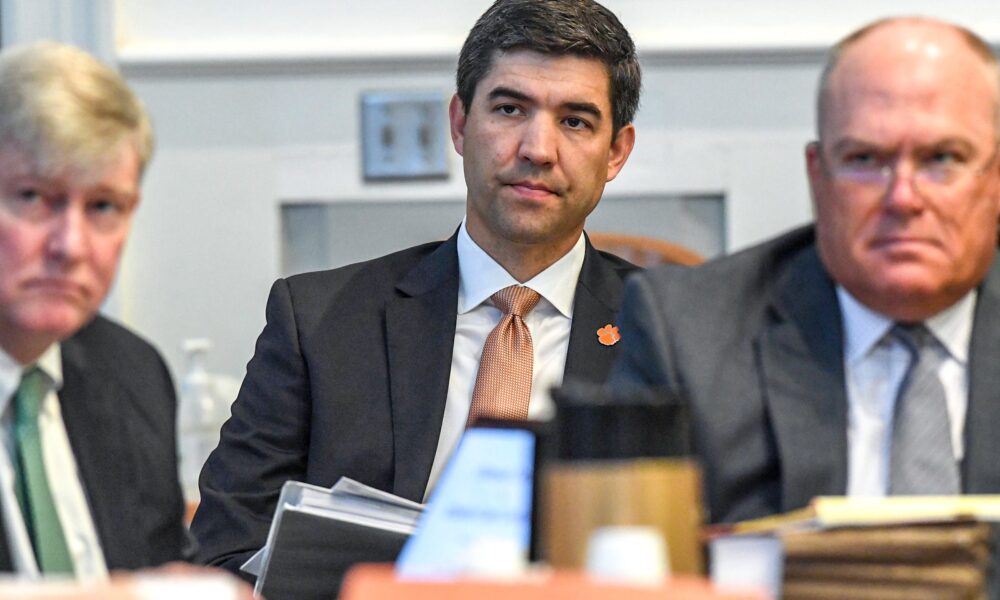CLEMSON – News on the Clemson vs. the Atlantic Coast Conference civil case came out on Friday.
A Pickens County judge has given Clemson University a couple of extra weeks to respond to the ACC’s request in the Clemson vs. the Atlantic Coast Conference civil suit.
Pickens County Judge Perry H. Gravely signed an order Friday extending Clemson’s deadline to respond to the ACC’s First Set of Interrogatories (formal list of written questions) and Requests for Production of Documents. Clemson’s original deadline was set for Nov. 6, but the consent order gives Clemson until Dec. 6 to respond.
The consent order was filed just after noon on Friday. This is the first real news to be released in the Clemson vs. ACC case since September when it was reported the sides could settle before things are all said and done. Whether that is the case or not remains to be seen.
Clemson still might have to prove its civil case against the ACC in front of a South Carolina jury.
The ACC originally filed a complaint on Sept. 5 requesting a jury trial in the Pickens County Court. The ACC’s complaint is part of an on-going civil suit against the conference, which began on March 19 when Clemson filed a complaint against the league that challenges its Grant of Rights and exit fee.
In its March 20 countersuit, the ACC said it seeks a declaration that the withdrawal payment is a “valid and enforceable” contract term applicable to Clemson. Also, it is declaration that the plain language of the GOR means what it says, and that Clemson’s GOR is exclusive and irrevocable through the term, regardless of whether Clemson remains in the ACC or not.
Clemson filed an amendment to its original civil suit against the ACC on April 17, saying the ACC created a public misconception regarding Clemson’s media rights. Thus, interfering with the school’s opportunities with other conferences and media providers regarding future collaborations.
In essence, Clemson claims the ACC slandered its name by using the GOR Agreement to strengthen its position, while devaluing Clemson’s brand. Clemson claims the GOR is narrower than what the league claims it to be.
Clemson also disputed the ACC’s claim that it entered into a join venture with the ACC and the other member institutions.
Back on July 10, North Carolina judge, Louis Bledsoe denied Clemson’s motion to dismiss the case in Mecklenburg County. Clemson filed an appeal to that ruling on July 11, and that case will now go in front of the North Carolina Supreme Court.
However, it could be a while before there is any resolution in the North Carolina case. Judge Bledsoe announced he will retire on Jan. 1. His retirement could delay Clemson’s appeal.
The news of Bledsoe’s retirement was not too surprising considering it was mentioned in the South Carolina jurisdiction hearing on July 12. Clemson attorney Rush Smith alluded to Bledsoe’s possible retirement from the bench, as he explained why it was important for Judge Gravely to rule on jurisdiction in South Carolina instead of waiting on the North Carolina appeal to go through, which could take anywhere from a year to 18 months.
If Clemson gets through the appeal process in North Carolina, the case will then go back to the state court, according to Smith, and that will take a little more time. If Clemson loses the appeal, the school’s lawyers indicated they could take the ruling to the U.S. Supreme Court.
